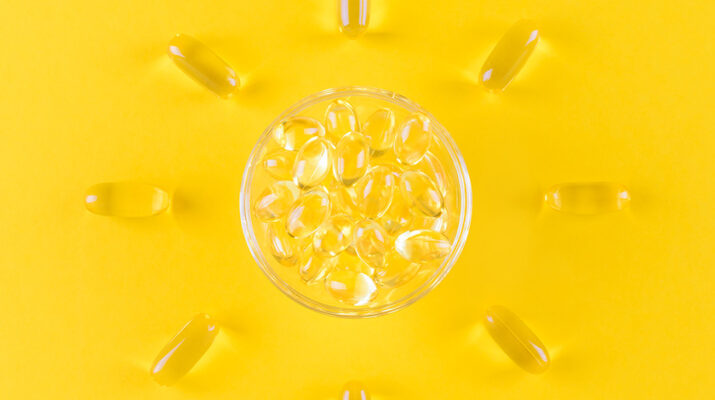By Deborah Jeanne Sergeant

For years, health experts touted vitamin D as a companion supplement to aid in absorption of bone-strengthening calcium. Then vitamin D became a veritable panacea; research linked it to supporting nearly every bodily function and system.
More recently, the importance of vitamin D has been minimized.
“The pendulum is swinging,” said Melissa Goddeau, registered and certified dietitian nutritionist at Nutrition Care of Rochester, PLLC in Rochester.
“Before, we found ‘the one’ vitamin that will fix everything. But vitamin D does a lot in the body, helping the body absorb calcium.”
A recent article by the Cleveland Clinic stated that people who are healthy and not undergoing treatments for health problems should not bother taking vitamin D.
The reputable medical website WebMD cites several research studies in a recent article to show that vitamin D isn’t a superstar supplement, as it doesn’t appear to lower risk of cancer, stroke or heart attack as once thought (although its role in calcium absorption remained intact).
The National Institutes of Health link excessive vitamin D with stomach discomfort, unusual mental symptoms, and kidney problems.
Goddeau believes that some of the previous importance placed on vitamin D stemmed from decreasing consumption of fortified foods such as milk. Only a handful of foods contain vitamin D and most of them are fish.
Goddeau also said that D-3, such as in fortified milk, is the most bioavailable form of vitamin D. People previously supplementing with D-2 wouldn’t receive the benefit provided by D-3, which perhaps spurred more health experts to push taking supplements. This may account for the previous enthusiasm for vitamin D supplementation.
The body generates vitamin D when exposed to sunlight. However, people in Upstate New York experience little exposure to sunlight all winter.
“Half the population has low vitamin D levels, it’s estimated,” Goddeau said. “And that’s not even looking at only high-risk groups, like people on certain medication or the elderly. That’s the general population.”
She encourages people to ask their primary care provider to test their vitamin D level to see if supplementation is needed. Most providers will not bring up vitamin D as part of a routine visit.
Marge Pickering Picone, owner of Professional Nutrition Services in Webster, thinks that many people overlook supplementing with vitamin D.
“It’s almost a preventive supplement that works in many ways,” she said.
She linked vitamin D with supporting the health of the immune system, emotional health, bone and muscle health. But “it’s not like a medication with an immediate effect. It’s something your body requires for long-term sustenance.”
In addition to getting the vitamin D level checked, she encourages clients to ensure their digestion is up to par, as that is vital to absorbing any vitamin D-3 supplements taken.
“I don’t agree with taking D-2 as it’s hard on the liver and kidneys,” she said. “Vitamin D-3 is more available and absorbable.”
Eat Your Vitamin D?
The daily value for vitamin D is 800 IU (20 mcg). Few naturally occurring food sources of vitamin D-3 exist and most of those are fish. Mushrooms provide only traces of the less helpful D-2 and they are the only vegan, non-supplemental source of either type of vitamin D.
Egg yolk contains 37 IU of vitamin D, although pastured hens may provide three to four times that amount because of their exposure to sunlight. Cod liver oil boasts 450 IU per teaspoon. Canned light tuna offers 269 IU per 3.5-ounce helping.
Try 3.5-ounce servings of these fish for more D-3:
Salmon 526 IU
Fresh Atlantic herring 214 IU
Canned sardines 193 IU
Halibut 190 IU
Mackerel 643 IU
In addition to milk, fortified foods include some brands of breakfast cereal, orange juice and yogurt.

